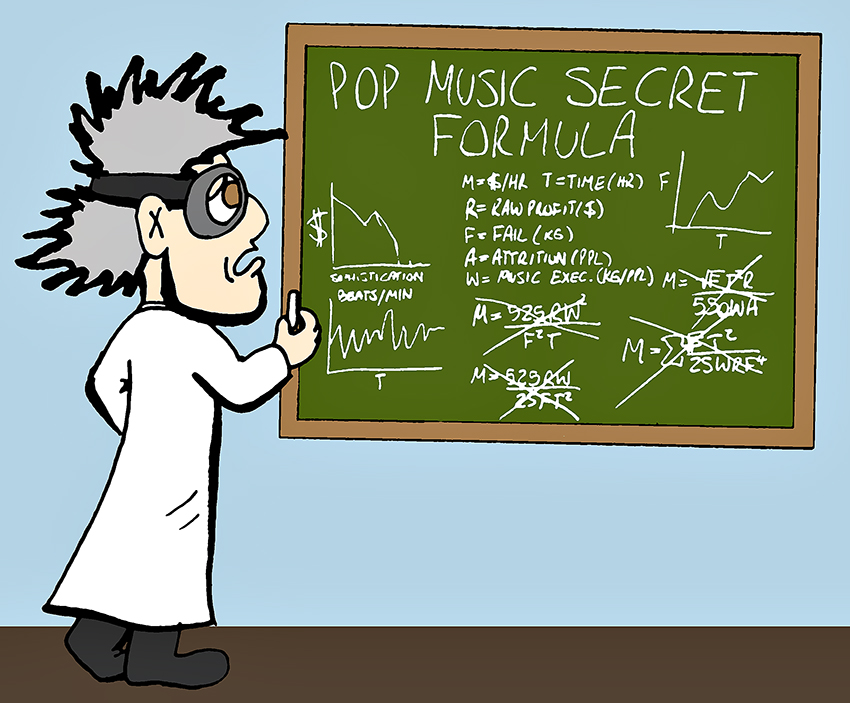From proverbs like “you are what you eat” to movements like veganism, the conscious consumption of food is a value woven throughout our modern culture. But another commodity as ubiquitous as food suffers from a startling lack of consumer scrutiny: pop music.
Yes, we have the Billboard 100 and album reviews, and anyone can post their musings about Taylor Swift’s latest hit to social media. But this is all discussion of taste, not substance. If we’ve learned anything from the candy binges and stomach aches of childhood, we know not everything that delights our senses is healthy.
Modern pop production is like a modern slaughterhouse: designed for efficiency and profit, machines and software transform even the most emaciated performance into a homogenized, chart-topping product.
For most pop musicians, the entire songwriting process is managed with ruthless precision. After producers lure artists into attractive contracts, they commandeer creative direction — down to individual notes and words.
The average pop song has almost as many writers as a Big Mac has preservatives. Covert networks of producers, including Lukasz “Dr. Luke” Gottwald and his mentor, Max Martin, have collectively written and produced hundreds of Grammy winners and Top 50 hits. Katy Perry, Taylor Swift, Miley Cyrus, Nicki Minaj, Britney Spears, Pitbull and many others are oftentimes just the mouthpieces of these middle-aged white men and their squadrons of beat producers, lyricists and melody writers capable of manufacturing up to sixty songs per week. In such a high-stakes environment, more than the music quality can suffer.
And still we listen. We like pop music for the same reason we like our bacon in evenly-cut strips and our hamburger in symmetric patties: consistency. The perverse form of quality control Dr. Luke and Co. employ keeps us coming back for more, but sterilizes the music.
The formula for a hit song has become so profitable that the industry follows it mechanically. Even the artists are noticing the similarities between songs. Kelly Clarkson voiced concern that her song “Already Gone” sounded like a copy of Beyonce’s “Halo.” The same man, Ryan Tedder, produced both (and both were hits).
Pop music, like spam and hot dogs, is great as an occasional treat, but great music cannot be manufactured. Great music, like the most nutritious food, is created without the industry additives — and is sometimes an acquired taste. Don’t be fooled by the next pop hit just off the conveyor belt — music is not meat!
Schmidt is a physics and aerospace engineering sophomore from Austin. Follow him on Twitter @heyjakers.





















